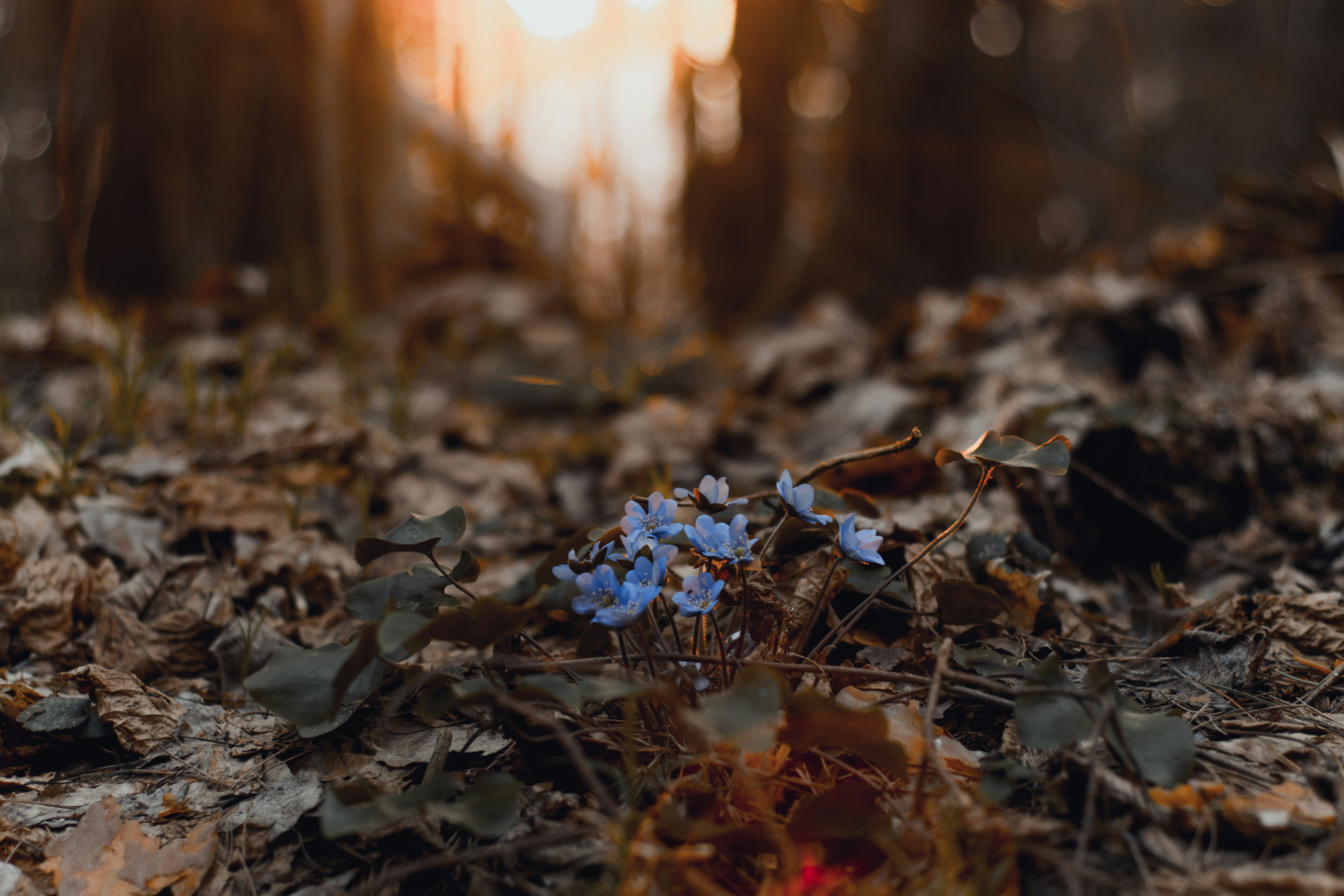
Tears to Douse a Fire by James Callan
Each time her teardrops fell to the earth the emerald moss thickened where they landed, the blue bells and cow parsley shot up so high, so fast, that their own weight became too much for their young roots to bear them. In the small puddles that formed from the dryad’s bitter grief, fly agarics bloomed thick at their bases, wide across their caps, forming vibrant red umbrellas to shelter the grubs and wood lice that conversed in the undergrowth.
When Oberon broke Atlanteia’s heart, spurned her love and took up the hand of her rival, Titania, the dryad’s resulting grief had turned acres of dry grassland into lush, overgrown greenwood. Her many tears softened the cracked earth, transforming arid land into fertile soil, a thick, plentiful grove. Her sorrow had been tempestuous, a black storm that swallowed the sky. Yet even so, it was nothing compared to this, to the darkness that pollutes her present-day, mangled spirit, to the plight that belongs not only to her, but to the whole of the world, to every entity within.
Atlanteia retreats to the heart of the forest where she was born, to the base of an ancient oak that predates the arrival of the woodland marauders, European settlers from another world. In the shadowed nooks of great, gnarled roots that have drunk earth-filtered rainwater for centuries, she nuzzles against the rough grain of tendrils as wide as elephant thighs. In the safety of this intimate space, she endeavors to escape the resonance of frenzied activity on the woodland edge. As far away as she can manage, it is still not enough. She can decipher the tireless industry of man.
She remembers the first men who crossed the boundless, poisoned water; strange beings, bearded and clad in metal, heavy-handed creatures who slayed for sport, beyond what they could use or eat. She remembers the forest before their arrival, the conifers to the north, ever expansive, its gradual, southward blend into deciduous regions with its seasonal moods, a conglomerate whole that proved rich and grand and full of life. From the Atlantic shoreline to the great grassland where bison herds moved the earth with their drumbeat footsteps, a woodland empire spread in vibrant, good health. Even now, it still inspires —a grand kingdom grown on the foundations of deep, probing roots, woody spires and bark-clad giants whose canopy blots out the sky in a mosaic of invariable shades of green. It all seems eternal, everlasting in its beauty, though wisdom has always preached that every kingdom one day falls. For her part, Atlanteia has seen this to be true. Her home—it is falling fast.
Her tears fall to cleanse the wounds, to staunch the bleeding which stains the forest pools and streams. With nimble fingers, she works all day, all night at her tireless craft. Atlanteia has never felt old, but today she feels ancient, primordial. She knits one open sore with the new roots of tender saplings and stitches other, half-healed gashes with threads of fallen bark. Helplessly, she watches as other lesions form, more ghastly, more fatal, numerous and constant.
A dryad trudges to the edge of a forest and watches glass towers dwarf her giant trees. She sees what men call a city, and nearest to the forest, a mall, a honeycomb of shops of useless items. She sees the flat plain of black man-rock with its painted white lines, the designated spaces for the many metal, wheeled horses to sit and wait while their riders spend money in a palace of monstrous triviality. She sees the acreage—the many countless miles—where grand lords and great ladies once flirted with the clouds above them, where northern white cedar and tamarack took counsel with oak and ash and elm.
Atlanteia turns her back on the world of men. She retreats deep into the heart of the forest. She cries among the rainfall and wonders if her tears alone will be enough. She wonders if her grief will ever end.
Meanwhile, among the fringes of a far-reaching bough, an opportunist awaits the impending moment, dashing into action the second that it arrives. An aggressive red squirrel out-wrestles its calmer brethren, plucks the acorn from a gray squirrel and runs off to scurry down the wide trunk, thwarted, in the end, by the savage jaws of a stoat, who ignores the prized nut that falls from a fallen thief. No less an opportunist, a chipmunk takes up the acorn and scampers over the wet leaf litter in the direction of a hollowed-out maple, a rotten stump that is its regular safe haven. Before it can bury the nut to add to its autumn cache, a red-tailed hawk swoops, silent, to clutch the rodent—acorn and all—taking it skyward in its unrelenting talons. At its nest, the hawk deposits the spent chipmunk, whose flesh feeds a trio of eyasses. The acorn, unwanted clutter, is discarded over the rim of interwoven twigs to fall down the full height of an elm. Upon the sloped forest floor, it rolls, it bounces, it cascades in lively impacts upon the uneven ground to finally settle in a modest clearing with ample light.
In this space, an acorn roots. It finds the fertile earth and takes hold. Far away, the din of men and their machines are left unheard. Here, in this sacred space, a future titan is born. Here, in this life-bearing wood, infantile dryads bud into existence.